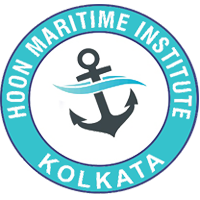Safety Audit Course is offered by Hoon Maritie Institute. In 1935, training of engineering cadets was also commenced on the Dufferin. The number of cadets admitted each year was 25 nautical and 25 engineering cadets.

Safety Audit Course is offered by Hoon Maritie Institute. In 1935, training of engineering cadets was also commenced on the Dufferin. The number of cadets admitted each year was 25 nautical and 25 engineering cadets.
Ever since, Indian Maritime Training sector has grown and has established itself a serious player in the World Fleet and has a long standing tradition of producing High quality officers.
To a large extent this was made possible by the Indian government's visionary initiative of establishing a few excellent maritime training institutes immediately after independence.
In recent years, India's position of leadership has been significantly weakened by an inability to keep pace with the technical advancements and sophistication.
Inadequate allocation of resources for maritime training from the government and lack of a suitable environment to facilitate private investment led to this decline.
The first Indian owned vessel S.S. "Loyalty" sailed out of Bombay Harbour on 5 th April 1919 for London. The vessel was owned by M/s. Scindia Steam Navigation Co.
The Master and the other officers were British. Subsequently a resolution was moved by Sir P. S. Sivaswamy Iyer in the Indian legislative assembly and R.I.M.S Dufferin was acquired by the Department of Commerce and converted into a training ship. On December 1927, the first batch of 50 nautical cadets joined the I.M.M.T.S. DUFFERIN.
In 1935, training of engineering cadets was also commenced on the Dufferin. The number of cadets admitted each year was 25 nautical and 25 engineering cadets. Ever since, Indian Maritime Training sector has grown and has established itself a serious player in the World Fleet and has a long standing tradition of producing High quality officers.
To a large extent this was made possible by the Indian government's visionary initiative of establishing a few excellent maritime training institutes immediately after independence.
In recent years, India's position of leadership has been significantly weakened by an inability to keep pace with the technical advancements and sophistication.
Inadequate allocation of resources for maritime training from the government and lack of a suitable environment to facilitate private investment led to this decline.
Hoon Group, a very reputed organization based out of Kolkata, having decades of experience in Hospitality & business management and having a family tradition of Senior Merchant Navy officers, started its work in 2011-2012 in establishing a Maritime Education center with its emphasis on Quality and Culture.
Thus, HMI was born. HMI, Kolkata is a Post sea / Modular course institute built in the Heart of Kolkata’s Maritime District. HMI is an initiative resourced and created by Indian Merchant Navy officers to cater the Merchant Navy Officers of India. Since the promoters are seafarers themselves, the Group aims at not solely increasing the numbers of Indian Merchant Navy officers but preparing Quality officers inculcated with ethical Sailing Traditions.
In Future, The Hoon Group endeavours to create more jobs for Seafarers both on shore and at sea and would strive to setup a post sea college on the four pillars of – Quality, Maritime Safety, Environmental Protection and Placement before admission.
© 2025 coursetakers.com All Rights Reserved. Terms and Conditions of use | Privacy Policy